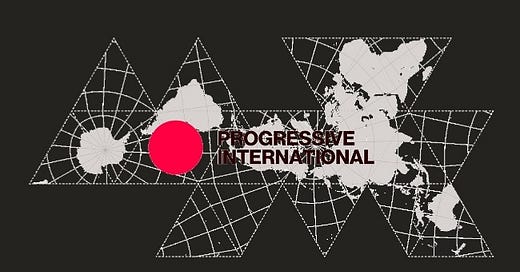The first summit of the Non-Aligned Movement (NAM) convened in Belgrade, Yugoslavia on 1 September 1961. Under the leadership of Jawaharlal Nehru of India, Sukarno of Indonesia, Gamal Abdel Nasser of Egypt, Kwame Nkrumah of Ghana and Josep Broz Tito of Yugoslavia, the week-long summit brought together delegates from 25 countries who strove for a collective foreign policy premised in peaceful coexistence.
“Unwilling to remain hostages to nuclear warfare and to nuclear detente, the new states of the 1950s wanted to chart out an independent path — not as proxies for an American-Soviet Cold War,” writes Indian historian and PI Council member Vijay Prashad.
In the latter half of the 20th century, this alternative formation, which came to represent two-thirds of the world’s population, sought to drive an agenda against imperialist domination and colonial subjugation.
A criteria for invitations to the Belgrade Summit was developed in Cairo in June, 1961. In addition to their “independent foreign policy”, invited nations “offered consistent support to national Independence movements” and were not “members of multilateral military alliances”. The journey to Belgrade, however, began decades earlier.
After the October Revolution of 1917, Indian Communist NM Roy predicted the “awakening of the East.” Three years later, the Congress of ‘The Peoples of the East’ brought 1,900 delegates to Baku, Azerbaijan, where they committed to struggle for a life “based on equality, freedom and brotherhood.” As millions won their emancipation from colonialism in the decades that followed, the call from Baku echoed towards Bandung, where the Conference of Afro-Asian Peoples opened in 1955.
The Bandung Conference grappled with issues common to the peoples of both continents: sovereignty, racism, nationalism and anti-colonial struggle. President Sukarno, who led Indonesia’s struggle for independence, called on conference delegates to “inject the voice of reason into world affairs and mobilize all the spiritual, all the moral, all the political strength of Asia and Africa.” His demand found expression in Belgrade six years later with the founding of the Non-Aligned Movement.
Opening the summit in the Yugoslav capital, Tito said that small and medium-sized countries “were looked upon… as a kind of voting machine in international forums such as the United Nations and others. This gathering of the highest representatives of non-aligned countries illustrates, however, that such outdated practices must be discarded, that non-aligned countries can no longer reconcile themselves with the status of observers and that, in their opinion, they have the right to participate in solving problems, particularly those which endanger the peace and the fate of the world at the present moment. This meeting has been convened to assert that right.”
Aiming to build a movement of solidarity strong enough to assert members’ interests on the world stage, the NAM grew in strength. When the Belgrade summit closed, Nehru and Nkrumah travelled to Moscow while Sukarno and Mali’s Modibo Keïta left for Washington. They carried an ‘Appeal For Peace’ to the major powers, asking them to return to the negotiating table from the brink of nuclear war.
By the Movement’s 5th Summit in Sri Lanka, 1976, 86 countries were members of the NAM. This upsurge followed the decision to take up the fight for a New International Economic Order during the 1970s.
At their Fourth Summit in Algiers, 1973, the NAM declared that, despite the trend in the international situation toward detente, imperialism continues to hamper the “economic and social progress of developing countries but also adopts an aggressive attitude towards those who oppose its plans, trying to impose upon them political, social and economic structures which encourage alien domination, dependence and neo-colonialism.”
The NAM rejected the post war world-order and presented an alternative that proposed turning it on its head. The Algiers Summit laid the foundations that would, one year later, come to formulate the UN Declaration on the Establishment of a New International Economic Order, based “on equity, sovereign equality, interdependence, common interest and cooperation among all States.”
“We face neither East nor West; We face forward,” said Kwame Nkrumah in summarising non-alignment’s struggle to advance the irreversible process of liberation.
Today, as the drums of war sound once again, peoples and nations are recapturing the spirit of Belgrade in 1961 as they struggle for a diplomacy based on cooperation and coexistence.
In solidarity,
The Progressive International Secretariat



